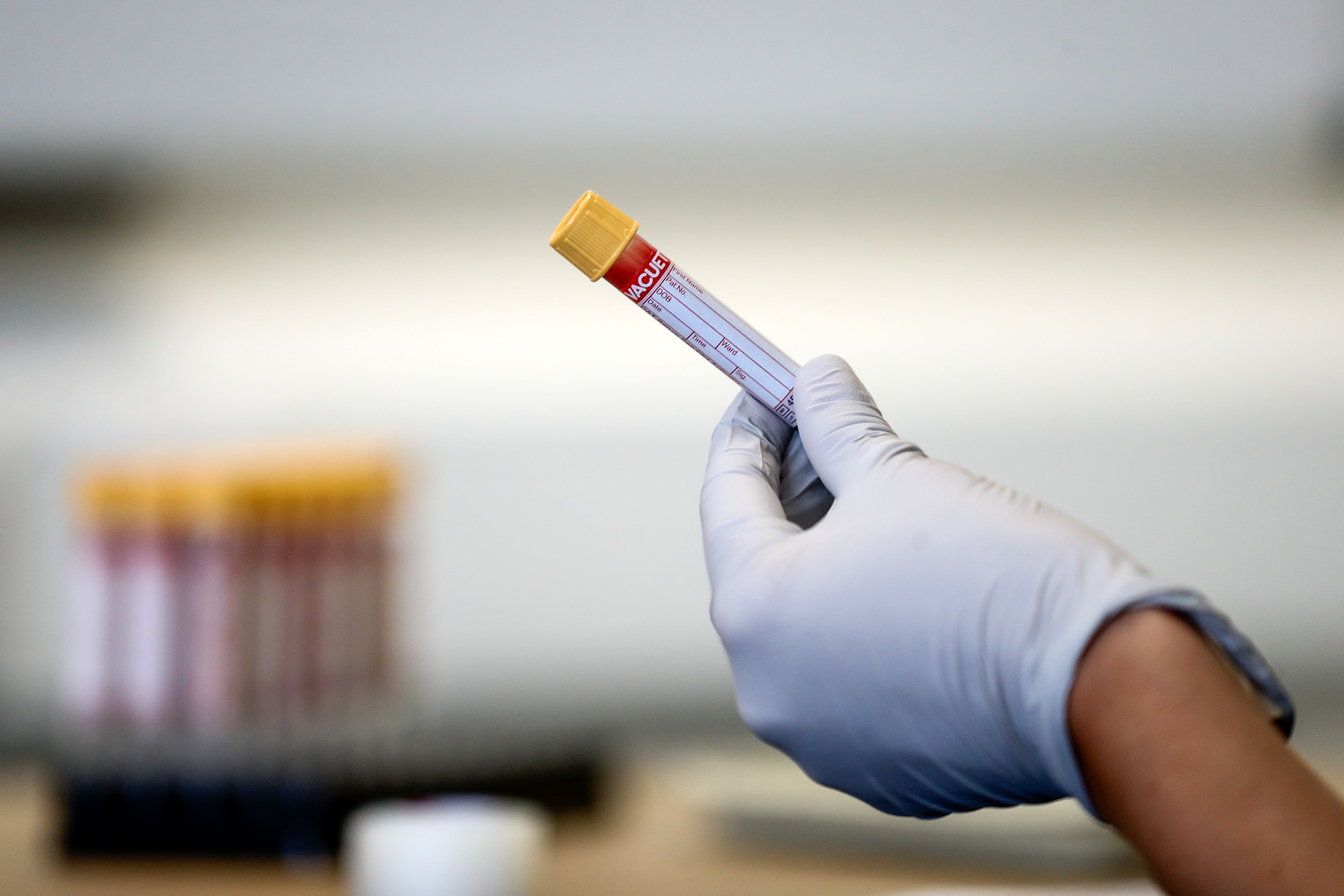New hope for bowel cancer patients as blood test could spare patients chemotherapy
Doctors say half of patients with stage 3 bowel cancer are cured by surgery alone

A new blood test could spare bowel cancer patients from undergoing unnecessary chemotherapy every year.
About 1,600 bowel cancer patients in the UK are set to take part in a study over four years, which could affect the way thousands of patients with the disease are treated.
The TRACC study, which involves the Royal Marsden NHS Foundation Trust in London, aims to predict relapse in colorectal cancer.
While most stage 3 bowel cancer patients are offered post-operative chemotherapy, doctors say it may be unnecessary for many patients with the disease, and half of patients are treated by surgery alone.
Between 30-50% of stage 3 colorectal cancer patients relapse from microscopic minimal residual disease (MRD), so high-risk bowel patients are recommended chemotherapy after surgery to help reduce the risk of future recurrence.
It is hoped the trialled blood test will prevent the need for chemotherapy by detecting microscopic traces of cancer in the bloodstream that would be invisible on a scan.
The presence of these markers indicates whether the patient has been successfully treated by their surgery or not.
Dr Naureen Starling, the principal investigator on the trial, said: “Half of patients with stage 3 bowel cancer are cured by surgery alone, so we are over-treating a large proportion of patients,” she said
The doctor added that sparing cancer patients of unnecessary chemotherapy is “good for the patient, it’s good for the health service, it’s good for cost savings within the NHS. That would be a win-win.”
The trial uses a test created by US company Guardant Health, with samples sent to labs in California for analysis and results two weeks later.
Ben Cooke, who runs a hair salon in London and works as a stylist for fashion shoots, was diagnosed with stage 3 bowel cancer in March last year, which was successfully treated with surgery.
The 52-year-old enrolled in a study at London’s Royal Marsden Hospital, which is evaluating whether a blood test can show if chemo is really needed.
Mr Cooke told the BBC that it is an “absolute blessing” that he did not need to have intravenous chemotherapy because it may have affected his ability to do his job.
“I would not be able to cope with that,” he said. “I need to work - it’s my therapy.”
The trial will examine the survival rates after three years for patients whose treatment was guided by the blood test, and patients who had intravenous chemotherapy. Similar trials are underway in the UK for patients with lung and breast cancer.
Dr Starling said the potential for this new technology across cancer care is “immense” for detecting residual disease after surgery, and for early diagnosis.
Interim results for the trial, made by Californian company Grail, are due early next year.



Join our commenting forum
Join thought-provoking conversations, follow other Independent readers and see their replies
Comments